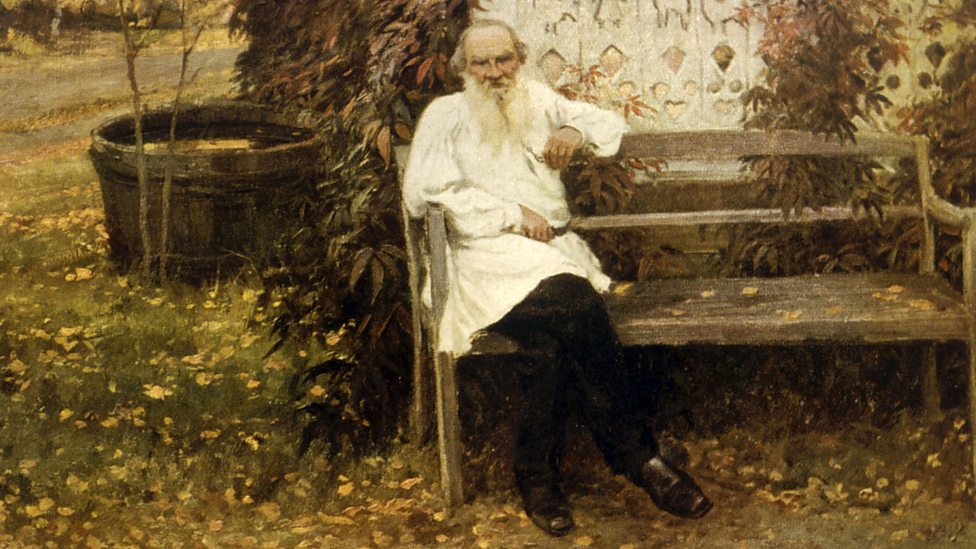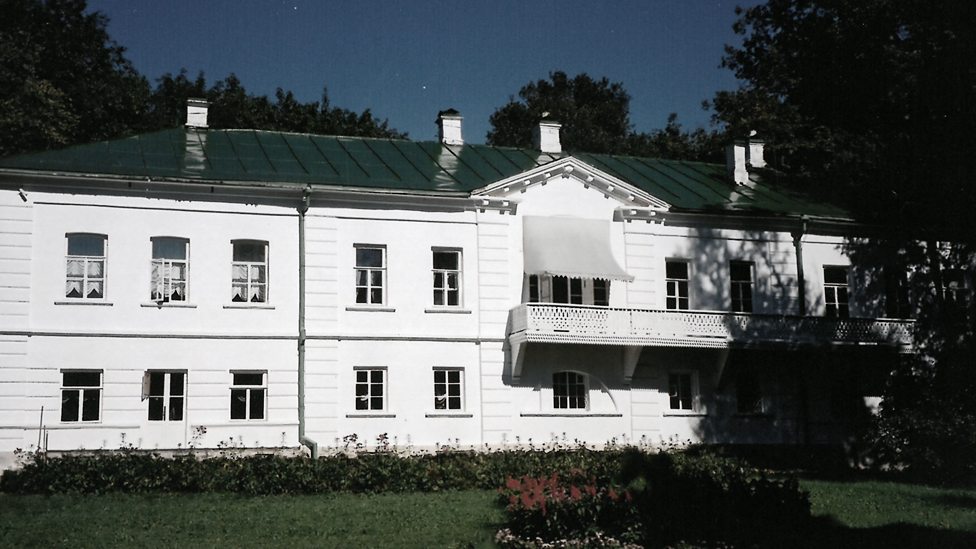“I think... if it is true that
there are as many minds as there
are heads, then there are as many
kinds of love as there are hearts.”
― Leo Tolstoy, Anna Karenina
(Audiobook: https://amzn.to/3Cs9SP2 )
孤寂・一九一0 ◎ #楊牧
(Leo Tolstoy: from Astapovo, with..., to Sonya)
是甚麼樣一種灼熱的意志在寒夜裏
反覆點燃著我衰朽的瞳人,而終於
就在火車長鳴而逝那一刻當我徬徨站在
蒸氣和水霧快速散去的鐵道上方
歎息吧絲昂雅,啊絲昂雅我的情人
我的愛已經熄滅,斷絕
以及我的恨
我已經失去設想音容與神智的
堅毅之力,設想你開始老去以後
那淺淺髮色底下優游的關注和冷淡,自在
而平滑的前額甚麼都不顯示,然而
即使此刻當我已經幾乎
失落自你溫存的笑與責備
自你習慣的慍怒和畏懼
惟獨在你的日記裏
我冗雜地存在,活著──
我依舊可以爲昔日的一杯茶
感動,低迴不已,當黃昏的天色沉沉
向我枯坐的窗滲透,包圍
我記得如何悲哀地從一些哲學理念中
悠悠醒轉,手撫著胸口
紙張散了一地
然而別的我都不太記得了,或許
大草原上搖曳發光的黃花像星星點綴
在小站屋簷一角,我們曾經遭遇的
無限蔓延的黃花在路過的草原上
發光──在簷角照著現在這裏
而且我惦念一些類似的名字
一些聲調,筆劃,痕跡
完全的孤寂
--
◎小編利文祺賞析
楊牧寫過三首關於俄國的詩,分別為〈伯力〉、〈聖・彼得堡〉、以及這首〈孤寂・一九一0〉。該詩描寫托爾斯泰於火車站一幕。晚期的托爾斯泰和妻子Sonya有許多意見、政治思想上的不和。對於托爾斯泰,他在小說中一直提倡的想法,自己卻無法實踐,為此他感到相當掙扎,他想要完全的清貧,並放棄身為貴族的所有一切,無奈他的妻子較為謹慎,以及她考慮到整個家庭的生活,並不允許作家這麼做。他們的不和,甚至引響了彼此。例如Sonya甚至懷疑托爾斯泰和他的秘書私下正在密謀,將家產捐出。最後,托爾斯泰在受不了Sonya的情況,在冬天的夜晚默默出走。他在Astapovo火車站倒下,在站務員的幫忙下才被送回家,但此時的他已經快要去世,仍拒絕Sonya探望他。托爾斯泰去世後,Sonya也因為傷心過度跳湖自殺,所幸獲救。
楊牧描述的托爾斯泰和現實有很大差異。詩中的托爾斯泰似乎盡釋前嫌,和妻子和好,在死前仍思念著妻子,但他已無力氣無設想妻子的容貌與神智,或她的「關注和冷淡」。生死之間的距離,和齟齬造成的距離,他不再感到妻子的「溫存的笑與責備」和「習慣的慍怒和畏懼」。然而,詩中的托爾斯泰仍向妻子道,或許自己可以永遠活在她寫過的日記中(托爾斯泰的妻子確實有寫日記的習慣,成為後世學者研究的好材料)。在日記中他仍為一杯茶感動,並讀著哲學書籍。在第四節,我們看到進入彌留的托爾斯泰,已無法回溯更多記憶,此時只能依稀「惦念一些類似的名字/一些聲調,筆劃,痕跡」,並感覺到面對死亡的「完全的孤寂」。
~~~
Tolstoy (托爾斯泰1828-1910)是Stefan Zweig (史蒂芬·茨威格,1881-1942)最崇拜的文豪---他1928年訪蘇印象記,有托爾斯泰的墳墓"最為動人"說法。該文可參考台北志文出版社的 {傻子伊凡},1995。
He made his own shoes.
Ten Things You Didn't Know About Tolstoy
BBC.IN



(Leo Tolstoy: from Astapovo, with..., to Sonya)
是甚麼樣一種灼熱的意志在寒夜裏
反覆點燃著我衰朽的瞳人,而終於
就在火車長鳴而逝那一刻當我徬徨站在
蒸氣和水霧快速散去的鐵道上方
歎息吧絲昂雅,啊絲昂雅我的情人
我的愛已經熄滅,斷絕
以及我的恨
我已經失去設想音容與神智的
堅毅之力,設想你開始老去以後
那淺淺髮色底下優游的關注和冷淡,自在
而平滑的前額甚麼都不顯示,然而
即使此刻當我已經幾乎
失落自你溫存的笑與責備
自你習慣的慍怒和畏懼
惟獨在你的日記裏
我冗雜地存在,活著──
我依舊可以爲昔日的一杯茶
感動,低迴不已,當黃昏的天色沉沉
向我枯坐的窗滲透,包圍
我記得如何悲哀地從一些哲學理念中
悠悠醒轉,手撫著胸口
紙張散了一地
然而別的我都不太記得了,或許
大草原上搖曳發光的黃花像星星點綴
在小站屋簷一角,我們曾經遭遇的
無限蔓延的黃花在路過的草原上
發光──在簷角照著現在這裏
而且我惦念一些類似的名字
一些聲調,筆劃,痕跡
完全的孤寂
--
◎小編利文祺賞析
楊牧寫過三首關於俄國的詩,分別為〈伯力〉、〈聖・彼得堡〉、以及這首〈孤寂・一九一0〉。該詩描寫托爾斯泰於火車站一幕。晚期的托爾斯泰和妻子Sonya有許多意見、政治思想上的不和。對於托爾斯泰,他在小說中一直提倡的想法,自己卻無法實踐,為此他感到相當掙扎,他想要完全的清貧,並放棄身為貴族的所有一切,無奈他的妻子較為謹慎,以及她考慮到整個家庭的生活,並不允許作家這麼做。他們的不和,甚至引響了彼此。例如Sonya甚至懷疑托爾斯泰和他的秘書私下正在密謀,將家產捐出。最後,托爾斯泰在受不了Sonya的情況,在冬天的夜晚默默出走。他在Astapovo火車站倒下,在站務員的幫忙下才被送回家,但此時的他已經快要去世,仍拒絕Sonya探望他。托爾斯泰去世後,Sonya也因為傷心過度跳湖自殺,所幸獲救。
楊牧描述的托爾斯泰和現實有很大差異。詩中的托爾斯泰似乎盡釋前嫌,和妻子和好,在死前仍思念著妻子,但他已無力氣無設想妻子的容貌與神智,或她的「關注和冷淡」。生死之間的距離,和齟齬造成的距離,他不再感到妻子的「溫存的笑與責備」和「習慣的慍怒和畏懼」。然而,詩中的托爾斯泰仍向妻子道,或許自己可以永遠活在她寫過的日記中(托爾斯泰的妻子確實有寫日記的習慣,成為後世學者研究的好材料)。在日記中他仍為一杯茶感動,並讀著哲學書籍。在第四節,我們看到進入彌留的托爾斯泰,已無法回溯更多記憶,此時只能依稀「惦念一些類似的名字/一些聲調,筆劃,痕跡」,並感覺到面對死亡的「完全的孤寂」。
~~~
Tolstoy (托爾斯泰1828-1910)是Stefan Zweig (史蒂芬·茨威格,1881-1942)最崇拜的文豪---他1928年訪蘇印象記,有托爾斯泰的墳墓"最為動人"說法。該文可參考台北志文出版社的 {傻子伊凡},1995。
Leo Tolstoy was born on August 9th 1828. A man who opposed state violence, who considered the church's union with the state as blasphemous, who denounced pseudo-patriotism, and who wrote to Alexander III asking him to pardon those who assassinated the tsar's father
He made his own shoes.
Ten Things You Didn't Know About Tolstoy
BBC.IN
Ten Things You Didn't Know About Tolstoy

Leo Tolstoy about a year before his death. Image courtesy of Mary Evans Picture Library
1. Tolstoy was a Count
Both Tolstoy’s parents belonged to ancient Russian aristocratic families. His grandfather on his mother’s side, Prince Nikolai Volkonsky, was a member of the court of Catherine the Great and Russian Ambassador to Berlin. His paternal grandfather, Count Ilya Tolstoy, was governor of the city of Kazan (now the capital of Tatarstan), the place enshrined in Russian memory as the location of Ivan the Terrible’s defeat of the Tatar-Mongol Horde.
2. Tolstoy proposed to his wife in code
The Behrs family had three daughters who were close acquaintances of Tolstoy. Though the family wanted him to marry the eldest, Liza, Tolstoy was more attracted to the middle daughter Sofia. Painfully shy yet tormented by his strong sexual desire for Sofia, he struggled to make plain his intentions. Sofia records in her diary that Tolstoy took some chalk and wrote the initial letters of some words on a card table, and asked her to guess the meaning. It was not just two or three letters such as ‘M. M’ for ‘Marry me’, but well over a dozen! Sofia claims that she understood at once. The scene is recreated in Tolstoy’s novel Anna Karenina when Levin proposes to Kitty for the second time.
3. Tolstoy thought Shakespeare was rubbish
Despite reading many of his works and enthusing to Sofia about his enormous dramatic talent, Tolstoy repeatedly published scathing opinions of Shakespeare, saying that he was without genius, a mediocre talent, and that his plays were beneath criticism – ‘I read and re-read the dramas, the comedies, the historical plays, and invariably, each time I experienced the same thing: disgust, boredom, astonishment’. He also said ‘Not only can Shakespeare’s plays not be taken as models of dramatic art, but they do not even conform to the most basic and universally agreed rules of art’. He rated Marlowe as a better dramatist. Ever confident in the rightness of his own views, Tolstoy was never afraid to go against public opinion, even the most widely held beliefs.
4. Tolstoy’s experience of the Crimean War inspired War and Peace
Tolstoy’s rich, detailed descriptions of military combat in War and Peace are enhanced by his personal experiences. He first served as an artillery officer in the Caucasus in various campaigns to assert Russian imperial rule in the region; he later fought at the siege of Sevastopol during the Crimean War and was promoted to lieutenant for outstanding bravery and courage. Despite appreciating the heightened emotions of battle, he knew a military career was not for him and he resigned his commission soon afterwards. He retained a lifelong fascination for the motivations of military life.

Tolstoy's house at Yasnaya Polyana. Image courtesy of Sarah Hudspith
5. Tolstoy gambled away a large part of his family inheritance
As a young man, Tolstoy lived a dissolute lifestyle and gambled extensively, particularly during his time as an army officer. In 1854 he was forced to dismantle and sell for 5,000 roubles the main stately home on the estate inherited from his maternal grandfather at Yasnaya Polyana. By 1855 he had gambled away the whole 5,000 roubles. He settled in a more modest house on the estate and lived there for more than 50 years.
6. Tolstoy made his own shoes
Tolstoy grew increasingly troubled by the privilege of his background and developed an interest in the lifestyle and culture of the peasantry. This extended to making his own shoes in the traditional peasant way out of bast: thin strips of bark from the birch or linden tree. He wasn’t very good at it but he wore them anyway.
7. Tolstoy was excommunicated by the Russian Orthodox Church
Tolstoy believed fervently in the ideals of Christianity, but despised organised religion, which he felt contradicted the teachings of Jesus. After a biting satire of the hypocrisy and corruption of Russian Orthodox Church officials in his last novel, Resurrection, the Church excommunicated him in 1901. The Church, and the Tsarist establishment, hoped that this would make Tolstoy unpopular and would quash his reputation as a critic of the regime. Instead, it served to make him even more famous and admired.
8. Tolstoy was Gandhi’s Inspiration
Some historians argue that Tolstoy’s essays on peace laid the foundations for modern pacifism. After reading Tolstoy’s The Kingdom of God Is Within You, Gandhi was inspired to pursue nonviolent resistance, calling Tolstoy "the greatest apostle of non-violence that the present age has produced". They corresponded for a year until Tolstoy’s death in November 1910, Gandhi later named his second ashram in South Africa ‘the Tolstoy Colony’.
9. Tolstoy was obsessed with sex
Tolstoy had a fraught relation with sex and at times and championed celibacy as a means of moral purity. Despite this, he went on to father 13 children. He lost his virginity to a prostitute and afterwards wrote that he fell to his knees in a wave of self-loathing and guilt. Tolstoy began writing a journal at 18 and set himself very prescriptive goals for self-improvement, one of which was to visit a brothel only twice a month. About the time he began keeping a diary, he wrote that he had contracted venereal disease and underwent treatment in 1847.

Tolstoy's grave at Yasnaya Polyana. Image courtesy of Sarah Hudspith
10. Tolstoy’s death was a major media event
By the time of his old age, Tolstoy was a cultural icon and had followers world-wide who tried to put his views into practice. He fled the family home in 1910, sick of the years of bad relations with his wife, but collapsed at a nearby railway station. The news of the dying celebrity drew huge crowds and news cameras from Pathé, making his death an international news story. More than three thousand people lined the streets to see his coffin carried back to Yasnaya Polyana. As Tolstoy had been excommunicated, there were no religious rites at his burial. Years before the Communists suppressed the Russian Orthodox Church, his was the first civil funeral in Russia.
Authored by Dr Sarah Hudspith, Associate Professor at The University of Leeds

沒有留言:
張貼留言